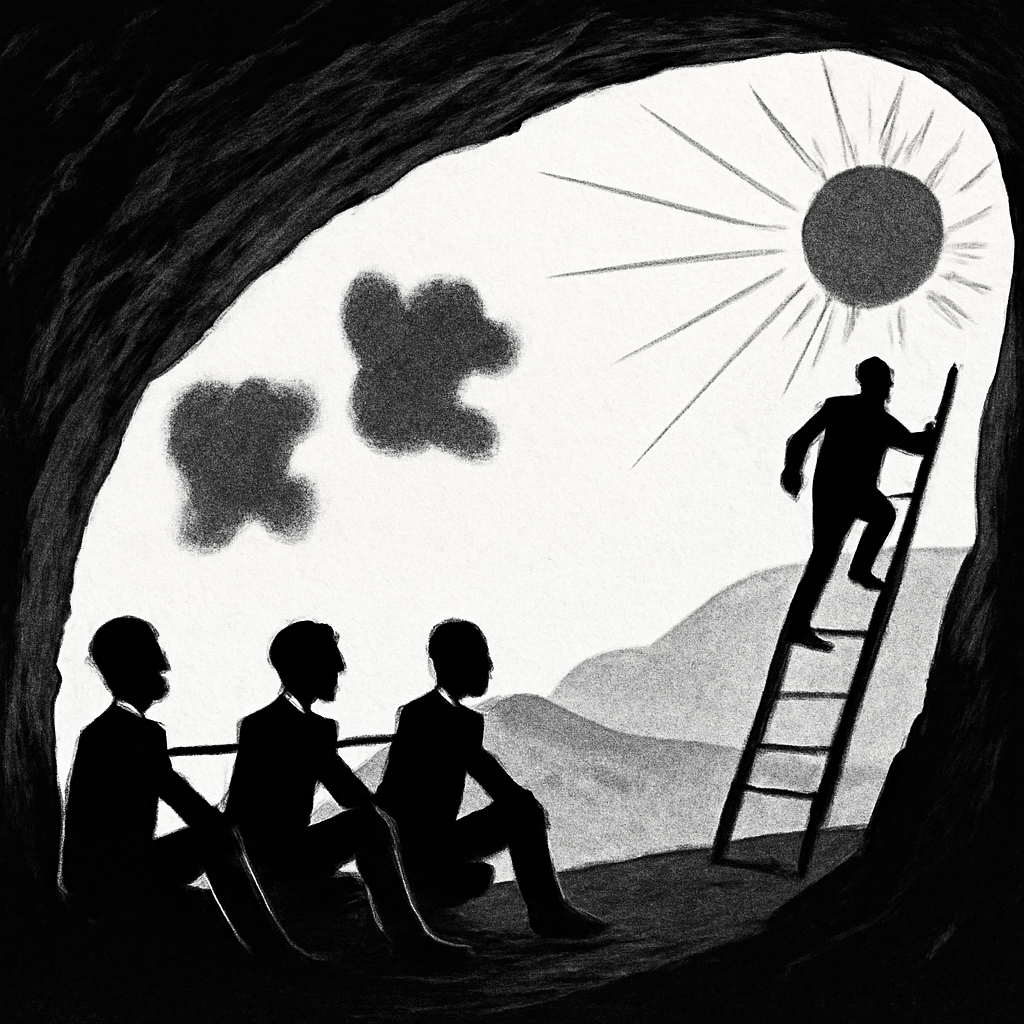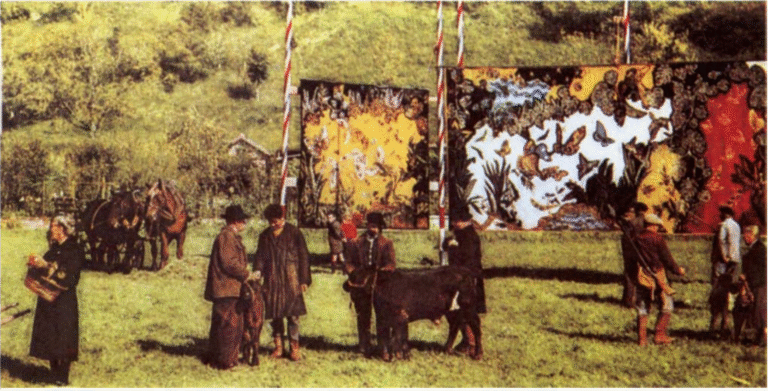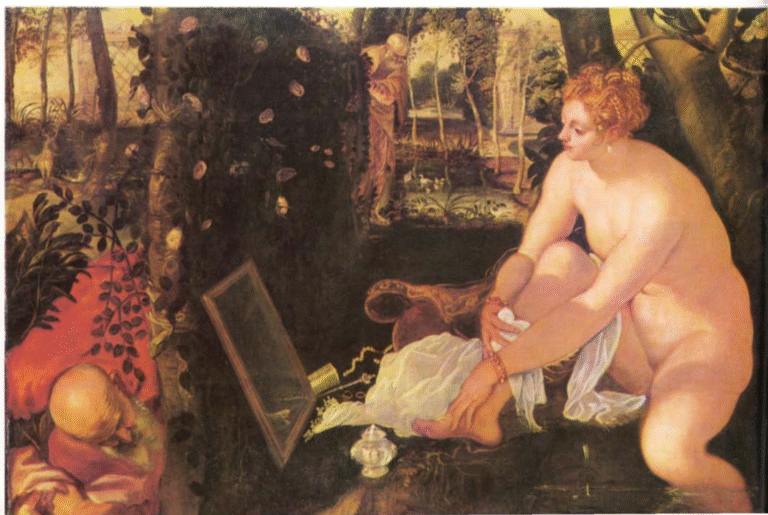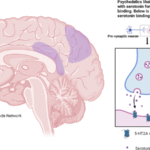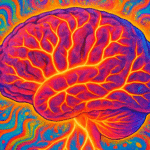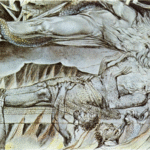Plato was one of the foundational father of the western philosophy, his works are considered to be one of the most influencial works in the philiosophy and political science. The Republic is the perfect example of Plato’s influence over western philosophy.
Plato’s Republic: The Pinnacle of Western Philosophy
Plato, one of the most influential writers in Western philosophy, left an indelible mark on the intellectual landscape of the Western world. His works have profoundly impacted countless thinkers, philosophers, politicians, and psychologists. Born in the heart of modern civilisation, Plato played a pivotal role in shaping the very foundation of Western philosophy.
The Definition of Justice and a Just City
In his seminal work, “The Republic,” Plato embarks on a profound exploration of the concept of justice and the ideal city. Through a series of dialogues, he delves into the intricacies of justice, presenting three distinct definitions that he subsequently dismantles and rejects.
Definition 1: Justice as Owing What is Owed
Plato posits that justice entails fulfilling one’s obligations to others. However, he raises a pertinent question: what if weapons are owed? If an insane individual is owed weapons, it becomes ethically challenging to provide them while expecting responsible use. The burden of responsibility for the misuse of these weapons lies solely with the individual offering them, rendering this definition illogical and outdated.
Definition 2: Justice as Beneficence and Harm
Plato proposes that justice involves aiding one’s friends and causing harm to one’s enemies. However, he questions how one can discern genuine friends from genuine enemies. The true intentions of individuals are often elusive, and friendships can transform into enmities, and vice versa. The definition of friend and enemy is arbitrary and subject to change over time, rendering this definition inadequate.
Definition 3: Justice as the Advantage of the Ruler
Plato suggests that justice is synonymous with the advantage of the ruler. However, he challenges this notion by questioning the nature of justice itself. He raises the hypothetical scenario of an individual being owed weapons by another. If an insane individual is owed weapons, it becomes ethically questionable to provide them while expecting responsible use. The burden of responsibility for the misuse of these weapons remains with the individual offering them, rendering this definition illogical and obsolete.
In the third definition, Plato employs the example of a doctor to illustrate his point. He questions whether a doctor derives any benefit from a sick person, suggesting that being sick is advantageous to the doctor and detrimental to the patient. The doctor’s livelihood is dependent on the sick patient, leading him to potentially pray for people to become ill, which Plato perceives as unjust for the patient but just for the doctor.
Plato further extends this concept to rulers, asserting that they should not always prioritise the well-being of their people. Rulers may be driven by their own interests and make decisions that benefit them at the expense of their subjects, resulting in injustice for the latter and just for the former.
Plato proposes his own definition of justice: “Minding one’s own business is just.” He emphasises that this principle applies not only to individuals but also to public matters. When a person engages in their own pursuits and functions within a well-organised manner, it benefits both themselves and the city where they reside. The individual does not assume the responsibility for everything but acknowledges their roles and fulfils them to the best of their abilities, thereby benefiting both the city and the individual.
Plato extends this definition to encompass the entire community. He asserts that if a person fulfils their duties and mindes their own business, it contributes to the overall well-being of the community. Each member of the community is assigned a specific task, and when everyone fulfils this task, the entire community benefits.
Plato believes that justice is not an individual concept but a communal concept. It cannot be viewed independently. In an ideal city, the needs of the city are met by its residents, and the residents’ needs are met by the city. The relationship between the city and its residents is a symbiotic relationship where one benefits from the other, and both parties are functional if they fulfil their respective duties towards each other.
It is also crucial to be just and nearly appear just. If an individual pretends to be just without actually being so, they will live a miserable life, making their lives undesirable. Such a person typically resides in an unjust city where the rulers are tyrannical. They live their lives pretending to be just and acting in a way that benefits them, ultimately toppling down the same behaviour and resulting in a miserable society.
Education and a Noble Lie
“Good people do not need laws to tell them to act responsibly, while bad people will find a way around the laws.” ~ Plato
According to Plato, education is the key to becoming a just individual, not just a healthy mind but a healthy body. A just soul resides in a healthy body and a healthy mind. Both physical and mental health are essential for living a just and fulfilled life. He introduces the concept of a noble lie for the city to maintain harmony in society. He believes that a noble lie, such as a myth or a legend, is crucial for the resident to maintain a connection with the city and establish a symbiotic relationship with it.
Plato emphasises that a myth or a legend, like the concept of Earth as our mother and nurturer of all life, helps keep the community together. It fosters a connection between an individual and the city and enables them to defend it during times of conflict. The soul of an individual is influenced by the city they reside in, and maintaining a strong connection with the city helps nourish their soul.
Plato states that the city establishes the laws that an individual lives by, and later, these individuals occupy offices in the city with the authority to lay down these laws and shape the city. Therefore, a strong foundation is crucial for the connection between the individual and the city, ensuring a bright and prosperous future. An unjust community cannot thrive, as its citizens become unjust, jeopardising the future of these communities.
The connection between the city an individual resides and that individual plays a significant role in defying the nature of that individual. If the city is unjust and the laws are disadvantageous the residents of that city turn out to be unjust and corrupt. The corruption runs in the heart of these city leading to the destruction and a dystopian future.
He divides the cities into three parts-
- Gold- this part of the city lays down the laws and is responsible for coming up with a noble lie for the city and its citizen to feel a connection with their community.
- Silver- this part of the city or the soul consists of hot-blooded spirited people that defines the city, they make up the army and the mediators for the city. They act as a bridge between the rational part of the city and the desirous part of the city. That help maintain the balance in the city and protect the city during a conflict.
- Bronze- this part of the city or the soul is ruled by desires, natural and sexual. Tis part seeks gratification and is helpful in knowing when to eat, when to sleep and when to procreate.
These parts are common in both the city and the soul. They represent both individual and collective functions of the city and the soul. Each of this parts is important for the survival of the community.
Political philosophy of Plato
According to Plato, an ideal ruler of the city are philosopher kings. The philosopher kings are the only means towards rational oversight and just laws. He believed philosophy and authority goes hand in hand. The soul of the philosopher kings are ruled by reason and they rule the city with rationality. The philosopher kings will seek wisdom and the soul will be balanced and harmonious. They won’t be subject to passion, their body will be healthy and the mind harmonious. The balance between the mind and the body, through education is ideal for making just and equal laws. The thrust for knowledge will be passed down to the residents of the city and the city will turn out to be just and fair.
The laws in this city will one be governed by rationality towards the common good. These law won’t benefit just the rulers but will be for the sake of shared good for the resident of the city and its citizens.
The allegory of the cave
The allegory of the cave explains the difference between difficulty in ruling and educating the masses. Plato believed that teaching the masses rational values are often burdened with irrational resistance. He explains this through the allegory of the cave. Plato explains this through the story of three prisoners tied in a dark cave with no exposure to the outside world. The dark cave consists of a fire that reflects the objects from the outside, which acts as the only connection between the prisoner abduction and the outside world. The reflection through the fire of the objects from outside world helps the prisoners form the picture of the outside world.
One day one of the prisoners escapes and is exposed to the outside world. He strolls in the outside world and experiences objects which he has never seen in his life, he cannot believe this experience and wants his fellow prisoners to experience these same feelings. He returns to the cabe and starts to explain his fellow prisoners about sun, trees and the different animals he encountered in the outside world. His fellow prisoners mocks him and won’t believe a word he says. The escapee further explains that all the objects that the other prisoners have encountered till now are mere shadow of the real world and there is a whole different world outside this realm. The prisoners still refuse to believe him.
Plato compares this story to the experience of a philosopher try to teach the masses about the reality of the world through philosophy. He says that most people are happy living in the shadow and if someone challenges their believe, they are often meet by resistance. Challenging someone’s believe is a daunting task and can cause misery to the person trying to change someone, even though the goal of the exercise is rationality and reform.
The types of governance and their cycle
Plato believed that there are five types of government that exists in the world and there is an endless cycle between them.
- Aristocracy is the ‘best form of governance’, the rule of the philosopher king.
- Timocracy- runs on the rule of honour. This form of governance isn’t smart enough to run an aristocracy and base their rule on elaborated themes of honour through speech.
- Oligarchy is the rule of money, the one with all the silver rules the city and buys their way to the office.
- The rule of oligarchy leads to protest and leads to democracy where everyone wishes equal state of affair and free speech.
- Tyranny is the worst form of governance where the rulers works on their best interest. The benefits of the rulers are pushed over the agenda over masses.
The cycle between these forms of governance is unavoidable, one follows other and leads to a never-ending cycle between these forms of governance.

